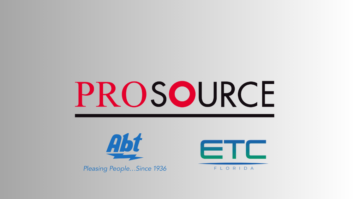NEW YORK –
Intel is setting out to do nothing less
than remake the notebook category with its
Ultrabook concept.
The chip maker has been slowly rolling
out Ultrabook models for most of 2011,
and the company believes the Ultrabook
will eventually become the norm for a notebook,
essentially supplanting the current
laptop infrastructure. While Intel will not
manufacture these devices itself, it has a
long history of developing new product
concepts to go along with its latest processors
to help vendors develop their own
devices.
Greg Welch, Intel’s OTG segment director, mobile
client platforms, told TWICE at a recent press
event, here, that this could happen within five years
as the initial costly products come down
in price to become competitive with the
low- and midpriced laptops that are now
on the market.
The first Ultrabooks are expected to be
available for this holiday season. Intel has
shown several models, with one by LG being
singled out during the press briefing.
Welch expects about six models to be
available this year worldwide. These will
sell through retail and be for the consumer,
not business buyer.
Initial price points will be in the $1,000 range, but Intel envisions this dropping as the law of
supply and demand kicks in. Intel plans to boost adoption
via a $300 million fund that will invest in third-party
companies developing hardware
and software around the Ultrabook
concept.
Welch described the Ultrabook
as the ultimate expression of what
a laptop should be.
“The Ultrabook is in response
to rising consumer expectations.
There is no compromise in this experience,”
he said.
The Ultrabook concept has been
kicking around Intel’s inner circles
for several years. The end result is
a notebook that is less than 21mm
thick, has a very fast boot time, features
between five and eight hours of battery life, and
incorporates anti-theft and identity-theft technology.
Many of these features are inspired by the success of
tablet PCs. Welch said the Ultrabook wants to emulate
the tablet experience, particularly the fast boot time.
“We can’t have 40 or 50 seconds to come out of hibernation.
Right now we have it down to seven seconds,
and expect to hit one second in a few years,” he said.
The Ultrabooks will form a distinct niche of the notebook
segment, particularly from the ultra-portable models
that are now available from most vendors. Welch
said screen sizes will vary from 11 inches to 15 inches,
and, as sales volumes increase, prices will drop to what
consumers now pay for a midpriced laptop.
Intel sees the Ultrabooks coming
onto the retail stage in two
phases. The first phase kicked
off in June when the company
introduced its latest secondgeneration
ultra-low-voltage Core
processors. These will be used in
the Ultrabooks that will hit stores
later this year. Phase two will commence
during 2012, when Intel’s
Ivy Bridge processors will ship.
The Ivy Bridge-powered Ultrabooks
will deliver better power
efficiency, increased security and
general responsiveness, the company
said.
This is the point where Ultrabooks would start replacing
the current crop of less-capable notebooks,
Welch said. Certain specialized notebooks for gamers
and graphics designers would remain on the market, he
noted.













